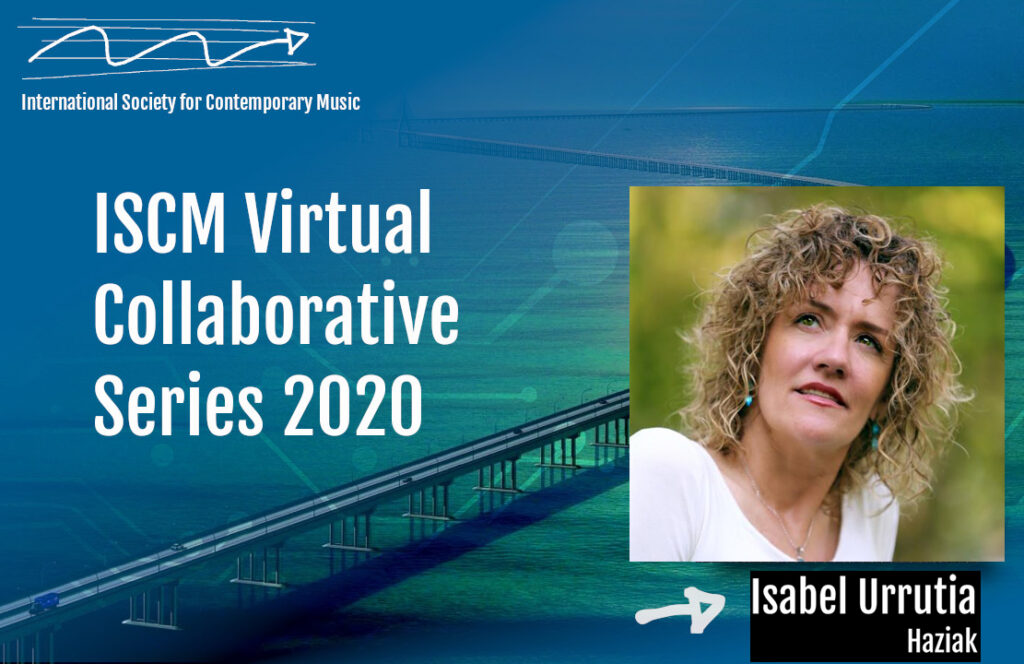Isabel Urrutia: Haziak

(Submitted by Musikagileak)
Basque composer Isabel Urrutia (b. 1967) studied composition, piano, and music pedagogy at the Bilbao Music Conservatory. Later she went on train with Francisco Escudero and in Paris with José Luis Campana. Her works have been premiered by international soloists such as Pierre Strauch, André Cazalet, Jean Geoffroy; by international ensembles, such as the Arcema/Paris Ensemble, Arditti Quartet; and by numerous orchestras, such as Symphonic Orchestra of Galicia, Symphonic Orchestra of Bilbao, Symphonic Orchestra of Tenerife, Symphonic Orchestra of Euskadi, Spanish Radio Television Orchestra, and the “Arthur Rubinstein” Philharmonic Orchestra of Lödz (Poland).
Her works have been performed in various concert halls and music festivals in Europe, America and Asia: in Spain, Germany, France, Italy, Argentina, Chile, Mexico, U.S.A., Russia, Poland, and China. She has given conferences and master classes on her music at different universities and conservatories in Europe and America: in Spain, France, Italy, Germany, Argentina, and Chile. She has won several national and international composition competitions with her works for orchestra, including The Prize of the Spanish Association of Symphonic Orchestras, (A.E.O.S.) and the “Grazyna Baciewicz” International Composition Competition of Poland.
Haziak (Seeds) for “live” cello solo and an ensemble of digitized folk instruments on support audio, was composed in 2018 using a new compositional method, created together with the composer José Luis Campana. This method that we call “World Timbres Mixture” consists mainly of mixing classical orchestra instruments with oral tradition instruments from different cultures and countries. The instruments of popular traditions used in this work are mainly stringed instruments, such as the dilruba, the sarangi, the Maghreb violin, the erhu, the Nordic psalmodikon, as well as plucked strings, such as the Laotian zither, the koto, the shamisen, and the Ukrainian Bandura.
None of the 17 timbres that sound in audio support were modified by sound transformation programs. Thanks to sound processing programs, sometimes ranges of certain instruments are extended higher or lower, but always staying close to their timbre. The main objective is to colour the timbre of the cello solo with all these string instruments of popular traditions and vice-versa in an unexpected and limitless world of new sounds. The world-premiere took place in Saint Etienne (France), by Marie Ythier on May 17th 2019
Haziak is published at BabelScores / Paris.
Marie Ythier, cello
C

ISCM
